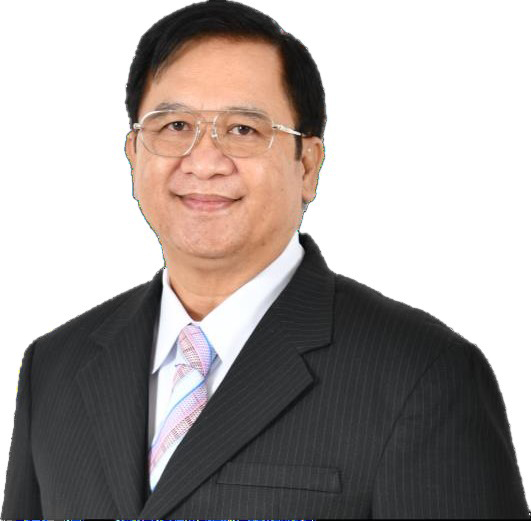The potential of retired PMA graduates in public office
BARRACKS AND STRATEGY
GUEST COLUMNIST

Several retired graduates from the Philippine Military Academy (PMA) are running for public office for the 2025 midterm elections. This pattern of former military leaders entering politics presents the question: Can their military background be useful in government? The answer is often yes, as their training and experiences offer a unique skill set valuable for leadership roles.
Effective leadership under pressure hallmarks any PMA graduate’s education. Making quick and effective decisions in crises was taught in schools and practiced in the service. This competence is vital in politics, where unforeseen crises occur. Senatorial candidates, such as Gregorio B. Honasan ('71) and Ariel Querubin ('79), provide excellent crisis management experience that could be useful in developing national security and public safety legislation. Querubin who received the Medal of Valor, is most known for his leadership in successful counter-insurgency operations in Mindanao. Mayor Elmer Soria ('82) of San Marcelino, Zambales, is noted for establishing an excellent disaster response and early warning system.
A strong sense of professionalism and integrity is imbued in PMA graduates. Following rigorous guidelines, their actions were methodically scrutinized and assessed while in the service. To those seeking leaders who prioritize the country before personal gain, this devotion and commitment to duty is a desirable trait for an elected official. Baguio City Mayor Benjamin Magalong ('82), admired for his transparency and ethical governance, and senatorial candidate Panfilo M. Lacson ('71), known for his long, forthright public service, are good models of how former officers may bring integrity to government. Focusing on urban regeneration and digital governance, Baguio City recently won the Human-CentriCity Gold Award in the Seoul Smart City Prize for its commitment to digital inclusion.
Strategic thinking is another advantage that PMA alumni have as they were taught and practiced to anticipate problems and devise long-term strategies, which are critical for good governance. This is useful for addressing concerns like poverty alleviation, infrastructure, and defense. Leaders such as Mayor Rodrigo de Gracia ('82) of Sta. Teresita, Cagayan, is focusing on infrastructure and public health improvements in his towns, while Mayor Ronnie S. Evangelista '86 of Rodriguez, Rizal, has created programs that provide crucial services to vulnerable groups, hence increasing residents’ overall quality of life.
Among PMA alumni, service is another prominent virtue, inspired by the motto “Courage, Integrity, Loyalty.” They believe public office is an extension of their service to the nation. This devotion to helping others is invigorating in a political system where personal interests frequently outweigh public demands. Governor Hermogenes Ebdane Jr, ('70) of Zambales exemplifies this mentality by focusing on their people's needs and priorities. Mayor John N. Aying (’85) of Sara, Iloilo, has made important contributions to agricultural growth and food security.
Nevertheless, critics argue that the military's disciplined leadership style may appear rigid in a democratic governance that frequently requires adaptability and consensus. When working with other groups, retired officers must adjust their approach to reflect a more collaborative, inclusive manner. Numerous former officers, such as Congressman Romeo M. Acop ('70 )of Antipolo City and Senator Ronald M. Dela Rosa ('86), showed their ability to shift to a more flexible, civilian-centered leadership style effectively.
In the upcoming election, retired PMA graduates are stepping forward to run for various offices, highlighting the depth of military experience within the political arena. Among them are Senatorial candidates Allen A. Capuyan (’83) and Arnel P. Escobal (’87). In Congress, Gerardo F. Barrientos Jr. (’83); Leopoldo N. Bataoil (’76); Romeo M. Caramat Jr. (’92); Valeriano T. De Leon (’89); Owen Jacques V. Demoni (’06); Edgardo T. Ladao (’82); Reynaldo P. Lopez (’92); Steve B. Ludan (’92); Fermin M. Mabulo (’95); Graciano J. Mijares (’88); and LEY Ordenes. governor candidates are Edgar B. Aglipay (’71) and Macairog S. Alberto (’86). Among Mayoral candidates are Artemio M. Abu (’92); Oscar D. Albayalde (’86); Rolando B. Anduyan (’90); John N. Aying (’84); Abraham B. Bagasin (’83); George L. Banzon (’92); Edward E. Carranza; Vic C. Castro (’82); Conrado T. Dieza Jr. (’92); Joseph M. Llopis (’92); Vicente A. Loot (’82); Marcos M. Mamay (’04); Ricardo I. Padilla (’77); Edward Albert P. Prades (’98); Victor D. Tangcawohn Jr. (’91); Norwin Romeo P. Tolentino (’91); and Antonio F. Trillanes IV (’95). Their combined experiences reflect a broad range of public service goals, from local governance and infrastructure to public safety and national security.
The candidacies of these PMA graduates are not to be doubted but rather welcomed with optimism. Their discipline, integrity, and commitment to service provide a welcome improvement in governance, particularly in a political system riddled with problems of inefficiency and corruption. As the country gears itself for the 2025 elections, PMA graduates may provide an alternative to traditional politicians—one founded on public service, integrity, and strategic vision.
(Lt. Gen. Aurelio B. Baladad (Ret) served as the 8th commander of the Eastern Mindanao Command, the 32nd commander of the 3rd Infantry (Spearhead) Division, and the former deputy chief of staff for Operations, J3 of the AFP. He is now the VP for cooperative planning and marketing of PAFCPIC, a cooperative serving the active and retired AFP personnel.)